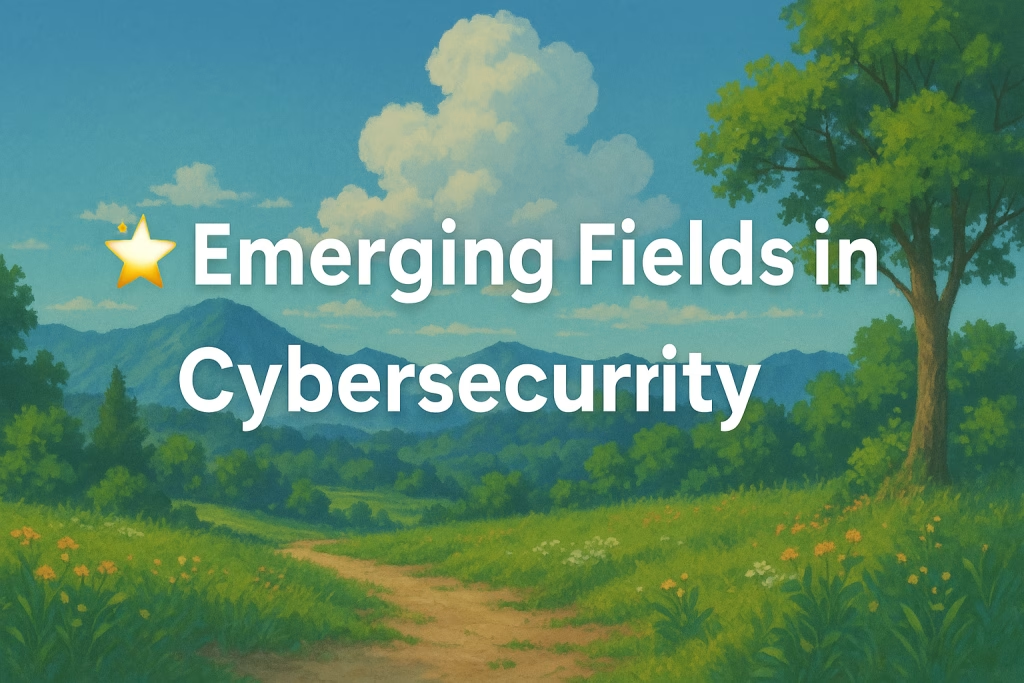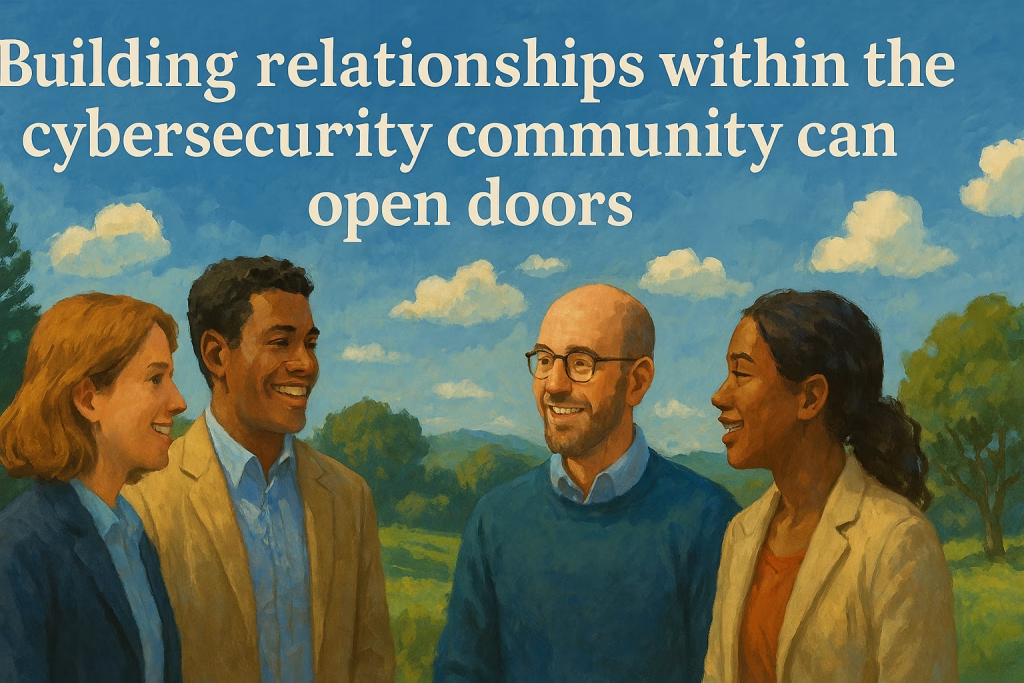The cybersecurity landscape is evolving rapidly, and with it, the demand for skilled professionals is at an all-time high. Whether you’re a recent graduate, a self-taught enthusiast, or a bug bounty hunter, breaking into the cybersecurity field in 2025 is both promising and challenging. This guide will walk you through the latest trends, emerging fields, and actionable steps to secure a cybersecurity position, even without traditional professional experience.
🔍 Understanding the 2025 Cybersecurity Landscape
Before diving into the job hunt, it’s crucial to grasp the current state of cybersecurity:
- Surging Demand: The cybersecurity market is projected to reach nearly $90 billion in 2025, reflecting the escalating need for security professionals.
- AI Integration: Artificial Intelligence (AI) and Machine Learning (ML) are now central to threat detection and response, creating new roles focused on AI-driven security solutions.
- Quantum Computing Concerns: The rise of quantum computing introduces both opportunities and challenges, necessitating expertise in quantum-resistant encryption methods.
🌟 Emerging Fields in Cybersecurity
As technology advances, new specialized areas are gaining prominence:
- AI Security Specialists: Professionals who protect AI systems from adversarial attacks and ensure the integrity of AI-driven processes.
- Quantum Cryptographers: Experts developing encryption methods resilient to quantum computing threats.
- IoT Security Analysts: Specialists focusing on securing the vast network of Internet of Things devices.
- Cloud Security Engineers: Professionals dedicated to safeguarding data and applications in cloud environments.
🛠️ Building Skills Without Formal Experience
Not having traditional experience doesn’t mean you’re at a disadvantage. Here’s how to build a compelling profile:

- Engage in Bug Bounty Programs: Platforms like HackerOne and Bugcrowd allow you to find and report security vulnerabilities, showcasing your practical skills.
- Contribute to Open-Source Projects: Participate in security-focused open-source initiatives to gain hands-on experience and visibility.
- Earn Relevant Certifications: Pursue certifications like CompTIA Security+, Certified Ethical Hacker (CEH), or Offensive Security Certified Professional (OSCP) to validate your knowledge.
- Develop a Strong Online Presence: Share your insights on cybersecurity topics through blogs, social media, or YouTube to demonstrate your expertise and passion.
📚 Education and Training Resources
Continuous learning is vital in cybersecurity:
- Online Courses: Platforms like Coursera and Udemy offer courses on various cybersecurity topics, from beginner to advanced levels.
- Capture The Flag (CTF) Competitions: Engage in CTF challenges to hone your problem-solving skills in real-world scenarios.
- Workshops and Webinars: Attend industry events to stay updated on the latest trends and network with professionals.
🏆 Showcasing Your Skills to Employers
Demonstrating your capabilities effectively can set you apart:
- Create a Portfolio: Document your projects, bug reports, and contributions to showcase your practical experience.
- Obtain Recommendations: Seek endorsements from mentors or professionals you’ve collaborated with to add credibility.
- Tailor Your Resume: Highlight relevant skills and experiences that align with the job description.
- Prepare for Technical Interviews: Be ready to discuss your problem-solving approaches and past projects in detail.
🔄 Networking and Community Involvement
Building relationships within the cybersecurity community can open doors:
- Join Professional Associations: Organizations like (ISC)² or ISACA offer networking opportunities and resources.
- Participate in Forums: Engage in discussions on platforms like Reddit’s r/netsec or Stack Exchange’s Information Security community.
- Attend Conferences: Events like DEF CON or Black Hat provide insights into industry developments and opportunities to connect with experts.

🌟 Real-Life Success Stories
Consider the journey of Mat Rollings, an application security professional who transitioned to full-time bug bounty hunting. By dedicating himself to identifying and reporting vulnerabilities, he accumulated around 500 reports and earned approximately $27,000 in the first half of the year.
🚀 Final Thoughts
Breaking into the cybersecurity field in 2025 requires a blend of continuous learning, practical experience, and proactive networking. By leveraging emerging trends, engaging in hands-on projects, and effectively showcasing your skills, you can position yourself as a strong candidate, even without traditional professional experience.
You can view my previous blog on ” How I made 2000$ using Flickr Account Takeover Bug! “
Key Takeaways:
- Stay informed about the latest cybersecurity trends and emerging fields.
- Build practical experience through bug bounty programs and open-source contributions.
- Pursue relevant certifications to validate your knowledge.
- Network actively within the cybersecurity community to uncover opportunities.
Embark on your cybersecurity journey today, and take proactive steps toward securing your future in this dynamic field!


https://prof-komplekt.com/club/user/11627/blog/13826/
Very good https://is.gd/tpjNyL
3lu5nw
https://t.me/s/TgGo1WIN/16
ydympvyxnszqdizmjpmspsnxemlmse
xn88 game Người chơi sẽ được hoàn lại,25% tổng số tiền đặt cược mỗi ngày, không giới hạn tối đa. Chính sách này áp dụng cho tất cả các loại hình cá cược, bao gồm Thể Thao và Quay Số (Saba), giúp giảm thiểu rủi ro và tối đa hóa lợi nhuận.
Bạn có thể chơi lô đánh đề từ 1.000+ kỳ quay thưởng đang diễn ra liên tục và hốt tiền cực nhanh chỉ sau 1 giây. xn88 gaming cung cấp nhiều kiểu cược xổ số khác nhau như: Bao lô, đánh đề, 3D, lô trượt, 4 càng giải Nhất,… đặc biệt là Up/Down, Reverse, Big/Small,… vừa mới “ra lò”.
Bạn có thể chơi lô đánh đề từ 1.000+ kỳ quay thưởng đang diễn ra liên tục và hốt tiền cực nhanh chỉ sau 1 giây. xn88 gaming cung cấp nhiều kiểu cược xổ số khác nhau như: Bao lô, đánh đề, 3D, lô trượt, 4 càng giải Nhất,… đặc biệt là Up/Down, Reverse, Big/Small,… vừa mới “ra lò”.
Tuy chỉ mới xuất hiện trên bản đồ cá cược, 66b nhưng nơi đây đã đặt ra sứ mệnh táo bạo: “Mang đến trải nghiệm cá cược công bằng, hiện đại và đậm chất cá nhân hóa cho người chơi toàn cầu”.
Tham gia chơi tại 66b không chỉ đem lại cơ hội cá cược hấp dẫn mà còn đi kèm với nhiều ưu điểm nổi bật giúp nâng cao trải nghiệm của người chơi.
66b login Khi người chơi mới đăng ký và nạp tiền lần đầu, họ sẽ nhận ngay 10% số tiền nạp, tối đa lên đến 18.000.000 VNĐ. Để đảm bảo tính minh bạch, người chơi cần hoàn thành ít nhất 20 vòng cược trước khi rút tiền.
Sau đây là phần giới thiệu đôi nét về nhà cái slot365 link alternatif. Đây là một nhà cái thuần Việt, nên có đầy đủ các game mà người Việt hay chơi. Tại nhà cái chúng tôi, bạn có thể tìm thấy những trò chơi quen thuộc như Mậu Liêng, bài Tiến Lên, Xóc đĩa và nhiều trò chơi hấp dẫn khác.
Thanks for sharing. I read many of your blog posts, cool, your blog is very good.